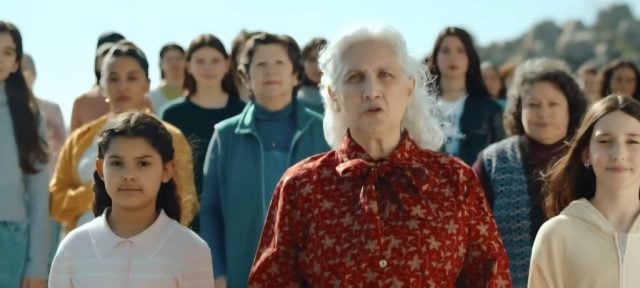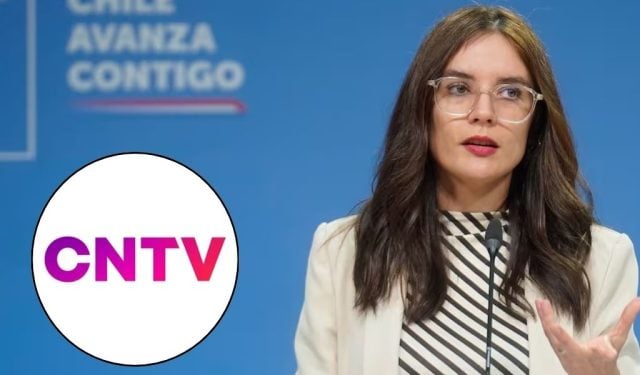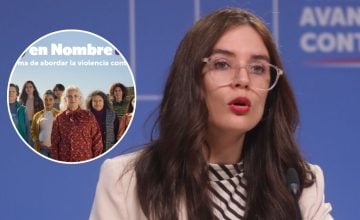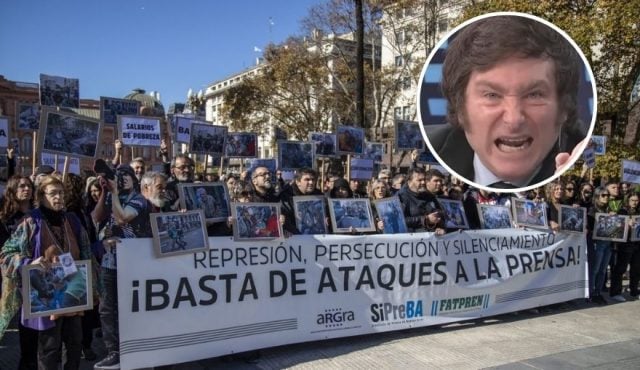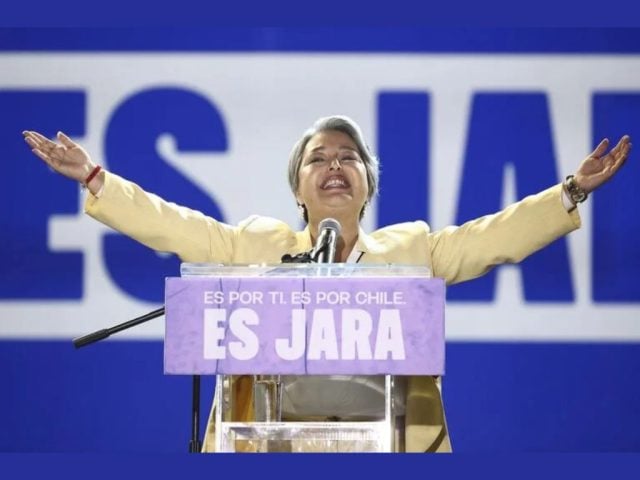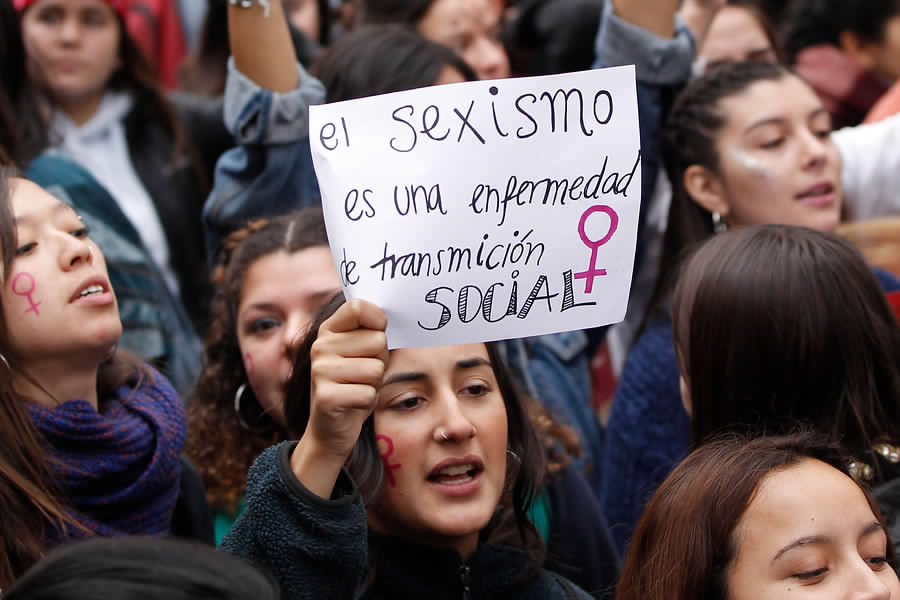Original article: “La confusión no se combate con silencio”: Red de Periodistas Feministas emplaza al CNTV por frenar campaña contra la violencia hacia las mujeres
«Confusion Cannot Be Combated with Silence»: Feminist Journalists Network Challenges CNTV’s Halt on Campaign Against Violence Towards Women
The Feminist Journalists and Communicators Network expressed its «deep concern and rejection» of the National Television Council’s (CNTV) resolution that halts the airing of a campaign promoting the Comprehensive Law Against Violence Towards Women, titled: «A Law in the Name of All».
The spot, produced by the Ministry of Women, was expected to air on open television from November 20 to 25, 2025, coinciding with November 25 (25N), which is observed as the Day for the Elimination of Violence Against Women.
However, on November 18, CNTV notified the Office of the Secretary General of Government (Segegob) that it would not approve the airing of the campaign after failing to secure the required quorum of seven votes in favor during the regular council session on November 10.
Five council members argued that the campaign might generate «confusion» in the current electoral context.
Specifically, the rejection of the broadcast came from Vice President Gastón Gómez and councilors María de los Ángeles Covarrubias, Carolina Dell’Oro, Bernardita del Solar, and Andrés Egaña.
According to records, despite declaring themselves «in favor of everything that goes against violence towards women,» they stated that the message conveyed might create confusion, stressing the need for strict messaging from the State and authorities during election periods like the present.
Feminist Journalists Network: «Confusion Cannot Be Combated with Silence»
In light of CNTV’s delay on the campaign, the members of the Feminist Journalists and Communicators Network issued a public statement arguing that «this decision, made on vague grounds, ignores the seriousness and urgency that gender-based violence represents for women’s lives in Chile,» adding that it «violates the international obligations that the Chilean State has undertaken regarding human rights».
«It is neither possible nor ethically acceptable for a public campaign aimed at protecting women’s right to live free from violence to be treated as a supposed ‘electoral risk’. This violation of fundamental rights is not a contingency; it is a permanent emergency,» they emphasized.
The organization argued that not approving the broadcast of the campaign limits the State’s ability to prevent violence, failing to meet the enhanced due diligence standards while also restricting public information on a recently enacted law that addresses a problem requiring urgent responses from public policy, and «adheres to the highest standards regarding women’s rights, compromising the State’s international responsibility and being highly relevant to the citizenry».
Furthermore, they warned that the council’s refusal sets a dangerous precedent: «that women’s rights can be downplayed by situational or electoral interpretations».
«It is particularly troubling that CNTV asserts the message could ‘generate confusion’. Precisely for this reason, mass communication with clarity and pedagogy is essential. Confusion cannot be combated with silence: it is fought with information. Public communication saves lives,» they reiterated.
In the same vein, the Network reminded that it has been documented «that prevention campaigns are not symbolic gestures, but concrete tools of protection». «Through these, thousands of women, many in extreme risk situations, are accessing information about their rights and available support services for the first time.»
«Every delay, every blockage, every institutional silence increases risk. When CNTV halts an essential campaign, it does not exercise neutrality: it produces material consequences,» they stressed in the statement.
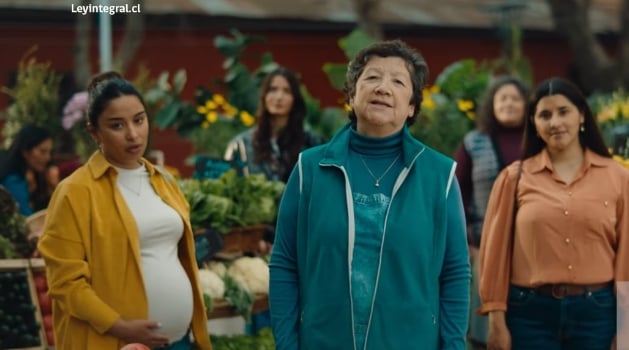
«Women’s Protection Must Not Be Subordinated to Electoral Calculations»
In response to these developments, the members of the Feminist Journalists and Communicators Network demanded that CNTV immediately reverse its decision, ensuring the full airing of the campaign «within the timelines of the November 25 commemorations,» and that State agencies «adopt protocols to safeguard gender campaigns from situational interpretations».
«We will not accept that women’s protection is subordinated to electoral calculations, institutional fears, or restrictive interpretations of public mandate. We will not tolerate a prevention campaign, a life-or-death tool for many women, being portrayed as a ‘communication hazard’. We sign this letter with the conviction that informing is also protecting,» they concluded.
Government Will Appeal CNTV’s Decision
The government will appeal CNTV’s decision to reject the campaign regarding the Comprehensive Law Against Violence Towards Women, announced the Secretary General of Government, Camila Vallejo, who requested the Council to reconsider the veto.
«We regret the rejection of this campaign because we have never faced a situation where a public interest campaign of this magnitude was rejected,» Vallejo stated during her usual Monday press briefing.
«We are talking about fulfilling the legal mandate we have from the Executive to promote awareness campaigns in accordance with our legislation, particularly considering that Chile has approved the Comprehensive Law Against Violence Towards Women. Therefore, during another commemoration of this magnitude, it is crucial that the campaign is approved,» she indicated.
The Secretary of State expressed her disappointment with the council’s decision and outlined the reasons for the appeal.
«It is unfathomable that the electoral context is used as an argument to reject a campaign aimed at protecting women. Women of all ages, diverse women who exist in our country, we must safeguard and protect from gender violence,» she argued.
«We obviously need reconsideration and approval to disseminate this very important campaign that has been in development for a long time,» she added.
She recalled that such campaigns had been aired on television in previous years and that electoral contexts had never served as an excuse for their rejection.
«We had it last year, the year before. Electoral contexts have never been an excuse to reject a campaign of this type. Moreover, there is no connection to the electoral context with a campaign that, I insist, seeks to promote respect and protect women and their rights from the various types of violence they may experience,» she argued.
You can watch the campaign spot for the Comprehensive Law Against Violence Towards Women, titled: «A Law in the Name of All» below.
